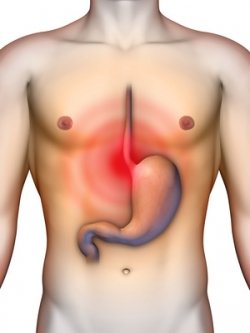
Health Awareness - Severe Heartburn SymptomsHeartburn is an occasional symptom that may happen to anyone, especially after eating spicy or fatty foods. Usually, it is something we don’t have to worry about, since it is a part of the natural occurrences in our body as it reacts to the food we intake. However, if the severe heartburn symptoms keep on recurring even after taking all the necessary steps for relief, this may not be the common heartburn we know, or it may have developed into a more severe condition.
The LES or lower esophageal sphincter normally contracts right after the food gets inside the stomach. This is the body’s mechanism to prevent acids from rising up. If the LES is weak, there’s a chance that it might not function very well, thus failure in contraction occurs, allowing the acids to irritate the esophagus, causing severe heartburn. When should you be alarmed? Severe heartburn or also known as chronic heartburn is a major symptom of a condition called GERD (gastro esophageal reflux disease). Common heartburn usually goes away after a few hours or after taking antacids. If the symptom persists, becomes long-lasting and occurs even when not triggered by any cause, you should consult a physician right away. Severe heartburn will usually affect a person’s daily routine, diet and sleep. Despite the changes in dietary habits, or even after taking prescribed medicines, severe heartburn arises more than twice a week and this should not be taken lightly. What causes severe heartburn? Pregnancy, obesity, and asthma are few of the conditions that may cause heartburn. It can also be caused by some types of food which are acidic, spicy and high in cholesterol. Chocolates, alcohol and caffeine can also trigger it if taken in large quantities. Severe heartburn is usually associated with underlying diseases such as GERD, ulcer, or esophageal cancer, although not at all times. If a normal heartburn is not treated properly, there is a great possibility for it to develop into a more serious and life-threatening condition. Symptoms To know whether you are experiencing severe heartburn, here are some of the common symptoms which you should watch out for.
If the chest pains happen more frequent than usual, this may be signs of severe heartburn. The burning sensation usually passes after several hours, if in any case it lasts for a period beyond the usual, you should call the doctor immediately.
Heartburn is caused by reflux of acids in the stomach. In severe cases, the acids travel further back up into the esophagus and reach the area where you can actually taste it. The taste will be very foul accompanied by strong acidic smell.
As acids reach the esophagus, it can cause severe damage to the lining. Oftentimes, the track tightens and swells due to the irritation and inflammation caused by the reflux. When this happens, swallowing will be very difficult, like you are about to choke or as if the food sticks to the throat. To seek medical help is highly recommended as this may also be symptoms of esophageal cancer.
Studies showed that 41% of non-smoking patients suffering from chronic cough have GERD. Another study linked asthma to the same disease. Results proved that 60% of asthma patients developed GERD, and found out that the condition, when aspirated into the lung’s airways, causes difficulty in breathing and wheezing. If you are a heartburn-sufferer and have experienced all the symptoms mentioned above, you should immediately tell your doctor about it. After being diagnosed, your physician will give you certain medications that will ease the symptom and stop it from ever recurring. It will also be a way to know if you have underlying diseases other than mere heartburn. | |||
*Disclaimer: The information found on this website should not be used as a replacement for professional medical care for the diagnosis, prevention, or treatment of reflux. Please consult with your general practioner or pharmacist before attempting to use any medication (prescription or OTC) or following any of the treatment methods mentioned. This information is provided solely to help you become as informed as possible about the acid reflux condition and its symptoms. |
Home About Us Privacy Contact Us Site Map
© Copyright www.acidrefluxsymptomsnow.com , 2010. All Rights Reserved.
Content Network: asbestos compensation | lower back pain relief
 Heartburn is a
Heartburn is a 

